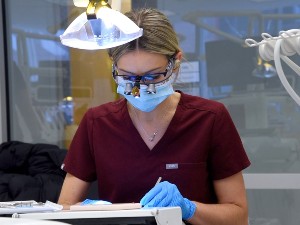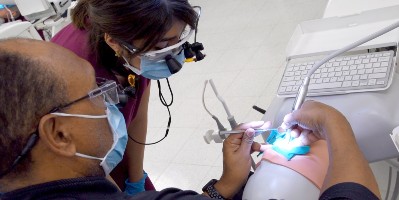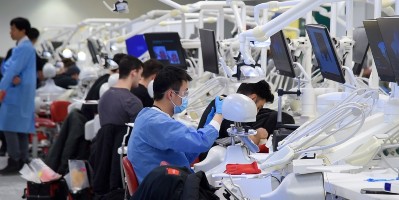About Us
 The University of Maryland School of Dentistry Simulation Program is designed to realistically prepare users, including undergraduate dental students and dental hygiene students, for the performance of dental patient care procedures.
The University of Maryland School of Dentistry Simulation Program is designed to realistically prepare users, including undergraduate dental students and dental hygiene students, for the performance of dental patient care procedures.
As a basis for their performance of finite psychomotor skills, students are introduced to the principles of human-centered ergonomics early in their first year. They learn to derive a posture, position, and process for practice in ways that enable the attainment of occupational health and peak performance without compromise of task, patient, or self.
Students then learn to perform dental procedures to high standards of precision, quality, and accountability on lifelike manikins in simulated and real practice settings, before treating patients.
This is accomplished in the School of Dentistry’s state-of-the-art clinical simulation units that replicate the features of a dental practice operatory, and the general practice clinics in which patients receive care. Professional skills and habits acquired in realistic clinical simulation ensure student ease, confidence, and competence in their later application to patient care.
Through the thoughtful use of best practices in simulation education, students will acquire psychomotor, clinical judgment and professional communication skills that are essential to provide quality patient care and safety.





